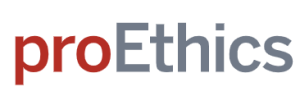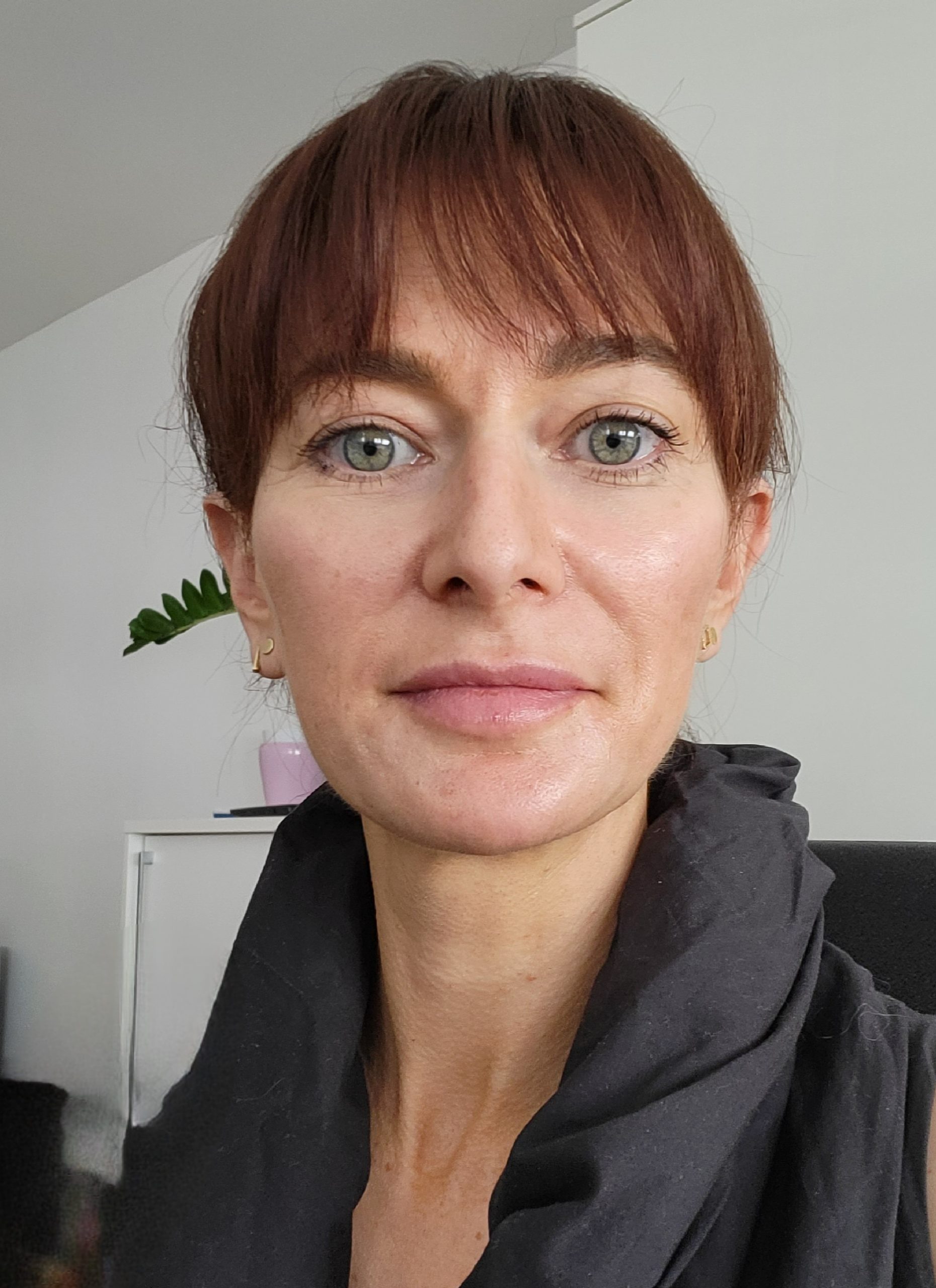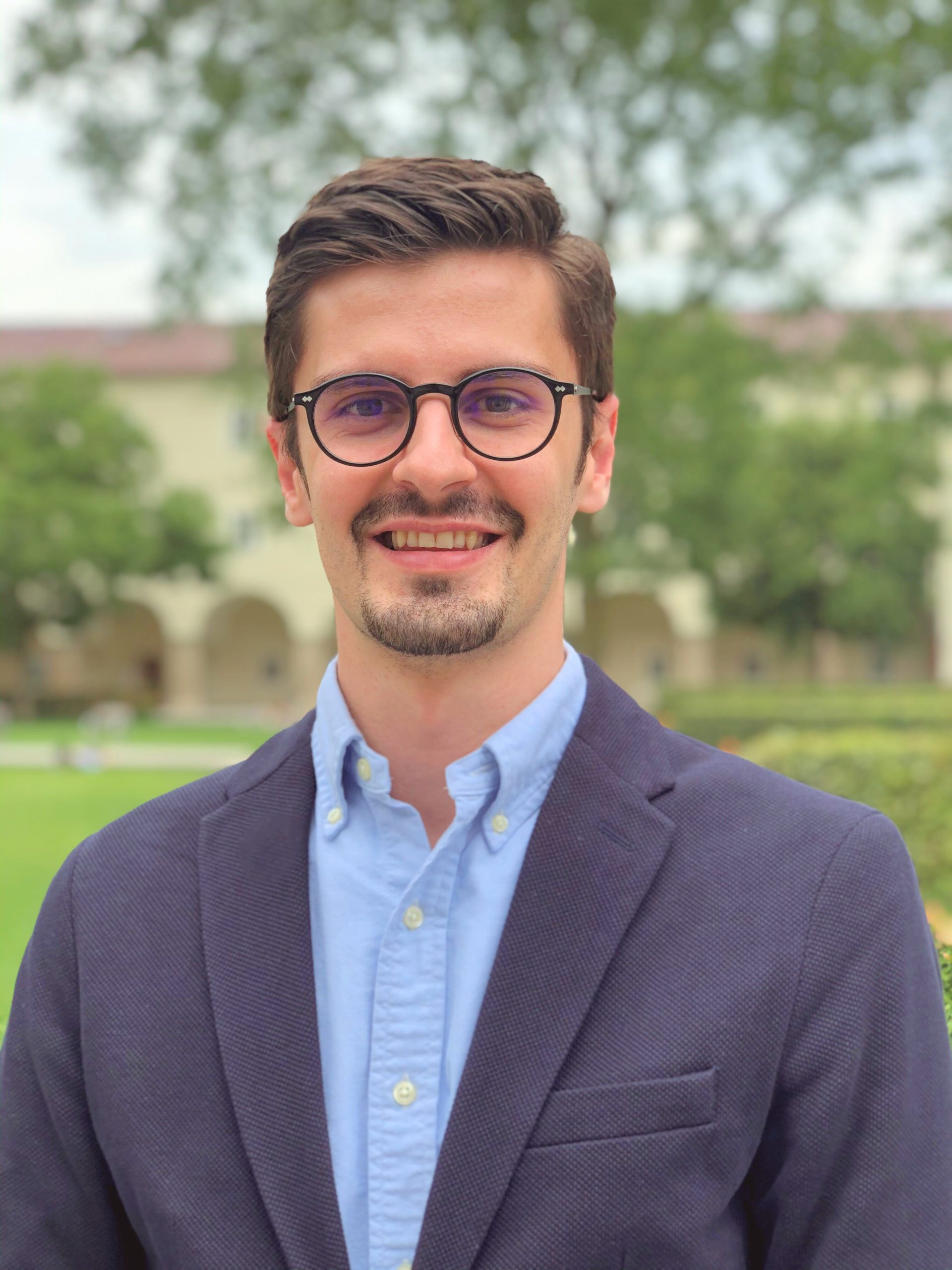
Overview
The LBG Ethics and Diversity Hub is an interdisciplinary platform bringing together expertise on Research Ethics and Integrity, and Diversity, Equity and Inclusion from across the organization.
An open and inclusive forum, the Hub is home to the LBG Research Ethics Committee, provides advice, support and consultation on all things Ethics and Diversity, and develops standards and guidelines in these areas in collaboration with international partners. The Hub welcomes researchers and practitioners from within and outside LBG who want to get involved in these areas.
LBG Research Ethics Committee
The LBG Research Ethics committee (REC) provides formal ethical review for all non-biomedical research with human participants. With core expertise in social science and applied ethics, it draws on a network of internal and external subject experts to cover a wide range of topics in conventional and participatory research. The committee has existed for two years and was opened to external applicants in 2024.
The LBG REC is committed to international research ethics standards including but not limited to
- The Nuremberg Code
- The European Commission Code of Ethics for Social Science and Humanities
- Guidance by the Committee on Publication Ethics
The REC is open to
LBG researchers whose research is NOT required by Austrian law to be assessed by a REC for clinical/biomedical research and who wish to submit their project for review on a voluntary basis.
Find out if your project is legally required to be assessed by a biomedical REC.
Why should I get ethics review if not required by law?
Researchers from other institutions from within and outside Austria who
- do not have access to a REC at their home institution or whose REC has declared the research outside its remit, and
- are not required by the law of their home country to apply to a national REC.
For both groups, before making an application, we kindly ask that you confirm with your home institution that it cannot/will not review your project and wherever possible, submit written evidence of this with your application.
How to apply
Please download the application form here. Once you have completed all relevant sections, please submit the form alongside all relevant documentation (consent forms, participant information, study protocol, questionnaire…) to erp@yot.np.ng
How does the review process work?
If you require support in completing the form please contact us at the above email address.
Consultation and Support
The Hub provides advice and support in the following areas:
Research Ethics: we can help plan and implement all ethical aspects of your research, at all stages of the project lifecycle: research design, methodology, REC review, data collection and analysis, and dissemination. Whether you are planning to submit to a funding call or just want to make sure that your project is up to the highest ethical standards, we are happy to answer all your questions big or small. You can also download templates for Informed Consent and other ethics documentation here.
Research Ethics for participatory research: In collaboration with experts from the LBG OIS Center, we can provide specific advice on ethical aspects of participatory research, Citizen Science and PPIE.
Research Integrity: good scientific practice also involves questions of integrity, such as conflict of interest, publication ethics or foreign interference. Our expertise is informed by the standards of the Committee for Publication Ethics (COPE) and Hub members are actively involved in current policy debates on handling retractions, AI use in scientific research and publishing, and good conduct within the scientific community.
Diversity, Equity and Inclusion: we can advise on developing and implementing Diversity initiatives both within research institutions and teams, and within specific research projects. Next to gender equity, our team have expertise in conventional and participatory research with vulnerable groups, accessibility, culturally sensitive research, and neurodiversity.
Simply email your query to rguvpfuho@yot.np.ng or arrange for an online consultation with one of our experts.
Research and Development
Hub staff are involved in a range of individual and collaborative research activities
Inclusion Health
Project Lead: Steph Grohmann; Project Staff: Adis Serifovic, Caroline Hammoutene, Laura Soyer
Inclusion Health is an ongoing program developing knowledge and methods for participatory health research with vulnerable and marginalized populations. Vulnerable groups, such as people experiencing homelessness, refugees and people seeking asylum, people with harmful substance use, or those leaving care, prison or a psychiatric facility, face significantly worse health outcomes than the average person and have complex health care needs.
At the same time, these groups are often described as “hard to reach” for health research, since conventional recruitment and involvement methods do not address their specific needs. The Inclusion Health team therefore develops outreach-based involvement and engagement methodologies to address health inequities and make participatory health research accessible for all members of society.
Project Milestones:
2022: Inclusion Health begins: The IH program is founded by members of the LBG Open Innovation in Science Center. During the first project year, staff conduct a stakeholder consultation involving people with lived experience of social exclusion, experts from health and social care, and researchers from a wide variety of disciplines, in order to set research priorities and identify areas for development. The Inclusion Health Team becomes a member of ProEthics.
2023: Inclusion Health goes on tour: Results of our stakeholder consultation are shared at a range of international conferences and workshops. The Inclusion Health Team develops a collaboration with the University of Edinburgh Centre for Homelessness and Inclusion Health. Team members engage in professional training at Edinburgh and in September 2023 travel to Scotland to meet with and learn from Inclusion Health experts from a wide range of health- and social care backgrounds.
2024: Inclusion Health goes Fashion Week: The team strikes up a collaboration with ThinkKallerful, Caritas and Vienna Fashion Week to develop an innovative approach for informing the public about health inequities via fashion (yes, really!). More details to follow!
ProEthics
Project Lead: Steph Grohmann, Project Staff: Adis Serifovic, Caroline Hammoutene
As part of our Inclusion Health program, we were members of the Horizon 2020 funded ProEthics consortium, which developed an ethics framework for research funding organisations funding participatory research. Our experts contributed specialist know-how on involvement of vulnerable and marginalized populations and participated in a wide range of international knowledge exchange activities such as the Connect-Collaborate-Create International Conference in Paris 2023.
PRO-Ethics: Ethics Framework and Guidelines. A guide for research funding organizations implementing participatory activities.Wiarda, M., Giannelos, K., Schuerz, S., Reber, B., Doorn, N. https://www. doi.org/10.5281/zenodo.8089673
The ProEthics Inclusion Health Pilot: ProEthics OIS Center_PPT_crossover event_sg
Health Literacy: Empowerment through Participation
Project Lead: Adis Serifovic
Adis’ doctoral research at the Medical University of Vienna focuses on the intersection of discrimination, empowerment, and participation within the health sciences, with a particular focus on the impact of discrimination on health literacy among the Muslim community in Austria. It explores how discrimination can hinder access to health information and restrict participation in health-related decision-making processes. The study highlights the crucial role of active participation in enhancing a sense of ownership and inclusivity in health policies. Adis will be disseminating results and learnings from this work as they come in.
Transformer
Transformer is a project by the Technical University of Vienna in Cooperation with the Climate- and Energy Fund and FFG. It will create a space for children and young people to explore and create ideas around Climate change . Hub members in collaboration with the LBG OIS Center support the project in implementing an accessibile and socially equitable approach to public involvement. This experiment is designed to inform the development of novel participatory methodologies for children and youth.
b. Inclusion Health goes Fashion Week: A new collaboration with ThinkKallerful, Caritas and Vienna Fashion Week aims to develop an innovative approach for informing the public about health inequities via fashion.
c. The Horizon 2020 funded ProEthics consortium developed an ethics framework for research funding organisations funding participatory research.
d. Adis’ doctoral research at the Medical University of Vienna focuses on the intersection of discrimination, empowerment, and participation within the health sciences, with a particular focus on the impact of discrimination on health literacy among the Muslim community in Austria.
Materials
Materials and resources for download (Open Access)
Principles for Equitable Participatory Research (English)
Principles for equitable participatory research (ppt); Principles for equitable participatory research (PDF)
Barriers to participation in Mental Health Research (English): A short introduction to barriers to participation in research for marginalized groups, especially in the mental health field
Barriers to participation in mental health research (ppt);Barriers to participation in mental health research (PDF)
Mini Ethics Checklist for PPIE and participatory research (English): A very quick guide to ethical considerations when planning participatory research
Mini ethics checklist for PPIE and participatory research (ppt);Mini ethics checklist for PPIE and participatory research (PDF)
Ethics in PPIE and participatory research (English): An introduction to research ethics in PPIE (patient and public involvement and engagement) and participatory research
Ethics in PPIE and participatory research(ppt); Ethics in PPIE and participatory research(PDF)
Ethics in Research: Principles (English, with audio): A full lecture introducing the basic principles of research ethics, with audio (click the speaker icon)
Ethics in Research_Principles(ppt) 2.pptx;Ethics in Research_Principles(PDF)
Introduction to Homeless and Inclusion Health (English): An introduction to Inclusion Health, multiple and complex health care needs, and the role of housing injustice for health inequities
Homeless and Inclusion Health Intro I (ppt);Homeless and Inclusion Health Intro I (PDF)
Homelessness and Mental Health (English): A lecture on mental health issues affecting people experiencing homelessness
Homelessness and mental health (ppt); Homelessness and mental health (PDF)
Inclusion Health: Gesundheit für extrem marginalisierte Personengruppen (German): An introduction to extreme health inequities and Inclusion Health, in German
Inclusion Health_Gesundheit für extrem marginalisierte Personengruppen(ppt);Inclusion Health_Gesundheit für extrem marginalisierte Personengruppen(PDF)
Events
Upcoming events
Introduction to Research Integrity
June 18th 13:00-14:00 CET, webinar
Presenter: Steph Grohmann
Language: English
This webinar gives an introduction to the field of Research Integrity. We will discuss the most important topics in this field and take a deep dive into Research Misconduct, Conflict of Interest, responsible use of AI and more.
Registration Link: https://eveeno.com/introduction-to-research-integrity
Target audience: LBG and external research staff, interested members of the public
Health Literacy: health competencies for vulnerable groups
May 29th: 13:00-14:00 CET, webinar
Presenter: Adis Serifovic
Language: German
This webinar explores the challenges and solutions for improving health literacy among vulnerable groups. Strategies are discussed on how to facilitate access to health information and services for these groups and effectively communicate them.
Registration Link: https://eveeno.com/322028622
Target audience: professionals in the health and social sectors, as well as individuals interested in promoting health literacy.
Publication Ethics
June 27th 13:00-14:00 CET, webinar
Presenter: Steph Grohmann
Language: English
This webinar covers issues of research integrity specific to publication and post-publication. We will be taking a look at plagiarism, authorship disputes, paper mills, predatory journals and more.
Registration Link: https://eveeno.com/publication-ethics
Target audience: LBG and external research staff, interested members of the public.
Past events:
Research Ethics in participatory non-clinical health research
April 18th 2024, webinar
Presenter: Steph Grohmann
Language: German
This webinar looked at research ethics in non-clinical health research with a particular focus on participatory and PPIE research. We looked at how participatory approaches differ from conventional methodologies and how its particular ethical challenges can be addressed.
Link to recording: coming soon!
Slides:
Ethik in der nicht-klinischen Gesundheitsforschung (ppt);Ethik in der nicht-klinischen Gesundheitsforschung (PDF)
What is research ethics: a short history of ethics (violations) in research
Feb 22nd 2024, webinar:
Presenter: Steph Grohmann
Language: German
This webinar covered the history of human rights abuses and the exploitation of vulnerable groups in medical research. We learned where our modern codes of research ethics originated and why ethical oversight is an indispensable part of good scientific practice.
Link to recording: coming soon!
Slides:
Was ist Forschungsethik- eine kurze Geschichte der Ethik(verstöße) in der Forschung (ppt);Was ist Forschungsethik- eine kurze Geschichte der Ethik(verstöße) in der Forschung (PDF)
Diversity, Equity and Inclusion in health research
March 21st 2024, webinar:
Presenter: Adis Serifovic
Language: German
This webinar covered the basics of Diversity, Equity and Inclusion in conventional and participatory health research. We will look at how historical and present social injustices impacts research and discuss methods and ideas to address them.
Link to recording: coming soon!
Slides:
Knowledge Exchange
Hub members participate in a wide range of knowledge exchange activities around research ethics and integrity, diversity and inclusion, such as:
World Congress on Research Integrity 2024, Athens, GR

19th annual International Street Medicine Symposium, London, UK

Citizen Science for Health Conference, University of Twente, NL

Connect-Collaborate-Create International Conference, Paris, FR
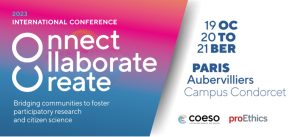
CitSci Helvetia 2023, Solothurn, CH
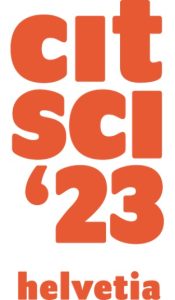
15. Forschungsforum der österreichischen Fachhochschulen, Villach, AT
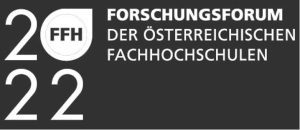
CitSci22, Aarhus, DK

Österreichische Citizen Science Konferenz 2022, Dornbirn, AT

Publications
Selected writings from Hub members
The Ethics of Space: Homelessness and Squatting in Urban England.Grohmann, S. 2020. HAU Books, University of Chicago Press. Chicago.ISBN: 9781912808281, https://haubooks.org/the-ethics-of-space/
Objects of Virtue: ‘Moral Grandstanding’ and the Capitalisation of Ethics under Neoliberal Commodity Fetishism.Grohmann, S.2023. Journal of Critical Realism Volume 22, Issue 1, p 22-48.https://doi.org/10.1080/14767430.2022.2095120
Inklusive Gesundheitsforschung: Einbindung von marginalisierten Gruppen in Gestaltungs- und Entscheidungsprozesse.Hammoutene, C., Serifovic, A., Grohmann, S.2023. in: Fritz, J., Tomaschek, N. (eds.) Partizipation: Das Zusammenwirken der Vielen für Demokratie, Wirtschaft und Umwelt, Waxmann, Münster, ISBN 978-3-8309-4731-8
‘Love is Tricky to Capture at that Level’: Social Care Values, Performance Measurement, and the Emergence of ‘Ethical Capital’.Grohmann, S.2023. Critical and Radical Social Work, Volume 11 Issue 1, p 96-112.https://doi.org/10.1332/204986021X16521798107100
A market in morality: Why measuring ‘ethical capital’ is a zero-sum game.Grohmann, S.2022. The Sociological Review Magazine. Online.https://doi.org/10.51428/tsr.gdzw6861
Ethics and the Spacetime Discontinuum. Grohmann, S.2021. HAU: Journal of Ethnographic Theory, 11(2) 827-832.https://doi.org/10.1086/716763
Responsible Parasites: The Ethics of Small-Scale Property Investment in the UK. Grohmann, S.2021. Housing, Theory and Society, 38(4).https://doi.org/10.1080/14036096.2020.1853225
Exploring the factors that influence harmful alcohol use through the refugee journey: a qualitative study.Cuthill, F.; Grohmann, S. 2020. Research report SHAAP/University of Edinburgh.https://www.shaap.org.uk/downloads/reports-and-briefings/290-refugees-experiences-of-harmful-alcohol-use-report.html
Contact
Interested in learning more or getting involved? Get in touch: rguvpfuho@yot.np.ng
Team:
Mag. Steph Grohmann MSc PhD
Head of Ethics & Diversity Hub, Senior Program Manager Ethics and Integrity, Head of LBG Ethics Committee
Steph Grohmann is a medical anthropologist with a background in social care who obtained her doctorate at Goldsmiths, University of London. She has over a decade experience in research on health inequities, the anthropology of ethics, and applied ethics in health- and social care, and has taught a wide range of postgraduate courses in qualitative methods and research ethics for a range of health-related fields. Before joining LBG, Steph has worked at the universities of London, Oxford and Edinburgh.
Adis Šerifović BA MA
Project Manager Inclusion, Open Innovation in Science Center, PhD student, Vienna Medical University
Adis Šerifović works as a Project Manager for Diversity, Equity, and Inclusion at the LBG OIS Center and is also a PhD student in Applied Medical Sciences at the Medical University of Vienna. After studying Social Work, he gained extensive experience in participatory research with a special focus on engaging vulnerable and marginalized groups. His doctoral research concerns the conceptualization of health literacy and its interpretation in underserved populations.
b. Adis Šerifović works as a Project Manager for Diversity, Equity, and Inclusion at the LBG OIS Center and is also a PhD student in Applied Medical Sciences at the Medical University of Vienna.
FAQ
-
Is my project legally required to be assessed by a clinical REC?
The Austrian Ministry of Science informs that “research concerning the clinical evaluation of medications and medical products, the application of novel medical methods and applied medical research on human participants” is legally required to be reviewed by a biomedical REC as specified in § 8c Kranken- und Kuranstaltengesetz des Bundes (KAKuG) and § 30 Universitätsgesetz 2002 (UG). This kind of REC is usually found at medical universities and research hospitals, in some cases there is also a regional REC (Landesethikkommission).
This means that if your project involves biomedical research (such as a clinical trial or any kind of medical intervention including the evaluation of medications, medical devices or medical techniques), you are required by law to seek approval from a REC. If you are in doubt which REC is responsible for your project, we may be able to help you find out.
If your project is in the medical/health field but does not involve biomedical/clinical research (such as a patient survey or interview study, observations on health- and social care contexts, or qualitative sub-elements of a clinical trial), you will not normally be legally required to have it reviewed. The same applies if your research is outside the biomedical field, e.g. social scientific or empirical humanities research.
However, since research involving human participants (especially vulnerable populations) is never entirely free of ethical risks, the Ministry of Science and we recommend you consider applying for voluntary ethical review.
-
Why should I get ethics review if not required by law?
The legal requirement to have biomedical research with human participants reviewed by a REC is a minimum standard to ensure that the health, safety and dignity of research participants is not compromised, and that mandatory international standards of ethical research practice such as Informed Consent and Respect for Persons are adhered to. These standards have been formulated in response to historical human rights violations especially in (but not limited to) medical research, and are codified in a range of documents such as:
Non-biomedical research is often seen to carry a lower risk for human participants. In Austria, ethical review in social science, law and the humanities is therefore voluntary. However, this does not mean that non-biomedical research is entirely risk-free.
Especially research on sensitive topics such as mental and physical illness, political persecution or social deprivation can cause participants considerable distress, and in some cases, profound harm. This especially applies to vulnerable populations, such as minors, patients or incarcerated people.
However, researchers too carry risks in neglecting ethical aspects of research: for example, lack of informed consent documentation may prevent a study from obtaining funding or from being published in a leading international journal, and in some cases, may even lead to a study having to be retracted.
Moreover, good scientific practice also involves conscientiousness about power differentials in the research process, questions of confidentiality and/or attribution of research results, fair compensation, transparent complaints procedures, and many more.
Leading international research institutions therefore most often operate a compulsory internal REC review policy. While in Austria, this is not (yet) everywhere the case, there is a growing awareness that even if ethical oversight is voluntary, that does not mean it is optional.
-
How does the LBG ethics review process work?
In the first instant, we recommend that you contact us at rguvpfuho@yot.np.ng to discuss your project and any questions you may have on how to put together your application. If you are sure you have all necessary information, please download our application form.
Once you have completed all relevant sections, please submit the form alongside all relevant documentation (consent forms, participant information, study protocol, questionnaire…) to erp@yot.np.ng.
When your application reaches us, it will be reviewed by one or several members of the REC, depending on the nature and field of the research and the level of ethical risk involved (e.g. does the research involve minors or people unable to give consent, is there a high likelihood of the research causing distress., etc.). Where necessary, the REC may seek an opinion from a subject expert from within LBG to discuss specific aspects of the research.
We aim to process applications within two weeks. For more complex research design or where there is a requirement for substantial amendments, this period may be extended.
Once assessment is complete, there will be one of three outcomes:
- The REC can provide a positive opinion: the project has been found to be ethically sound.
- The REC requests amendments: the project has been found to be principle ethically sound but requires certain changes/additional documentation to receive a positive opinion. In this case, you will be able to supply an amended application as soon as you are able.
- The REC is unable to provide a positive opinion: the project has fundamental ethical flaws that cannot be amended though changes or additional documentation.
Once your project has received a positive opinion, you will be issued with a letter stating this which you may use as proof of review in funding applications or for publication purposes.
Please note that the REC only issues ethical opinions. They do not constitute legal or medical advice, and do not imply any kind of instruction, directive or order. LBG employees who receive an opinion from the REC are encouraged to discuss its implications with their line manager.


